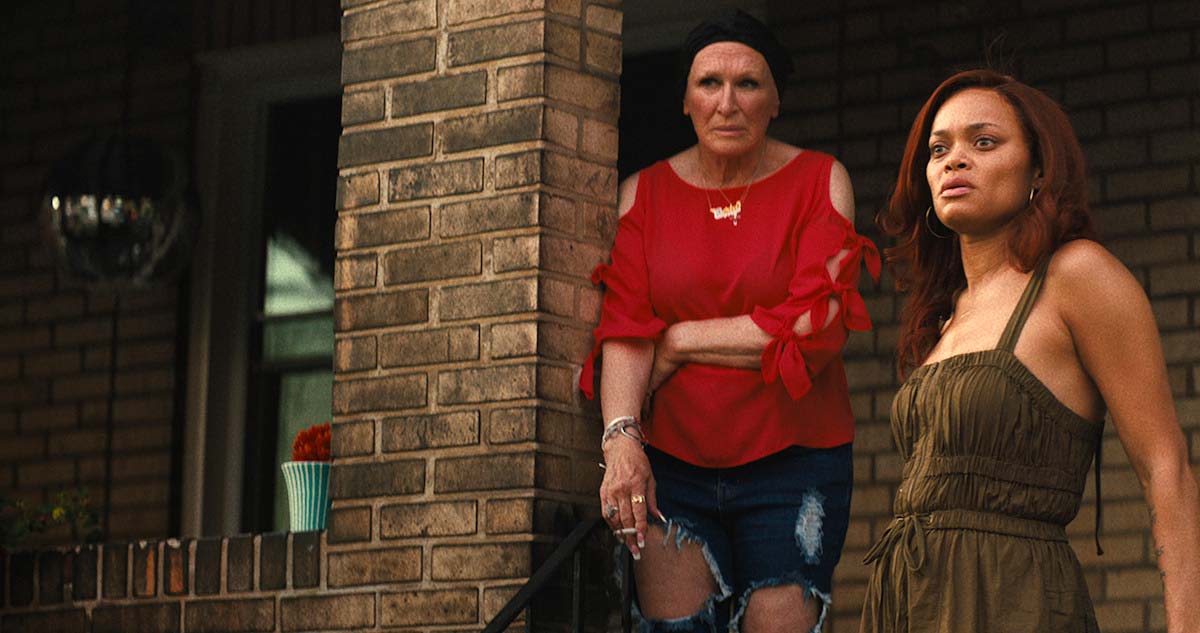5,002 / 5,568 (10%)
:max_bytes(150000):strip_icc():focal(999x0:1001x2)/andra-day-the-deliverance-081324-5ead7c5f0511456ab98fbcfc4ec5196b.jpg)
Netflix brings us another demon-possession horror film with Lee Daniel’s (Precious, 2009) The Deliverance. Like The Amityville Horror films and the Conjuring Universe, this is based on alleged real-world occurrences, this time the Ammons haunting case in Gary, Indiana. Where Satan and their generational trauma torment a single mother, her mother, and her three children. Will they survive or will the devil finally win?
The effort stars Andra Day (The United States vs. Billie Holiday, 2021) and Glenn Close (Hillbilly Elegy, 2020) as the mother-daughter duo. Close’s Alberta Jackson is a recent convert to Charmiastic Christianity after having lived a difficult life. At the same time, her alcoholic daughter Ebony (Day) has left Philadelphia and her husband to start over in a new house with her three children. Alberta regularly impresses upon Ebony the need to convert to the Pentecostal faith, turning the tone of the film toward a faith-based message movie at times.
Catholic aesthetics have dominated the realm of exorcism films, primarily because of the faith’s belief in demonic possessions as well as the rich visual world and ceremony at the core of the Church. Protestantism has intentionally removed itself from the high ritual stylings of Catholicism and largely downplayed such manifestations of the supernatural. However, the 20th-century Pentecostal and Charismatic movements, while still lacking the visual acuity of Catholic or Orthodox faiths, openly embrace mystic concepts such as being taken over by the Holy Spirit or a demonic presence. This allows Daniels to play with some vaguely new turns on cinematic exorcisms, though without any energy or purpose, causing the proceedings to feel like a high-budget church movie.

Lacking any fresh ideas, The Deliverance uses the evil spirit to represent the abuse, harm, and trauma inflicted upon Ebony’s children from her alcoholism and reckless life decisions. Day performs well, though her character is poorly written as mean and sullen or suddenly contrite, while Close’s reformed mother chews the scenery in a cartoonish portrayal of an aging urban mother. The Deliverance takes a few theological jabs at Catholic movies, because that’s what audiences are here for, before trading holy water for anointing oil and Latin prayers for speaking in tongues. Daniels lacks the vision for new imagery as every version of demonic possession ever offered in cinema is repeated as characters’ back arch, joints separate, eyes glaze, and they are contorted into a crucifixion pose.
Lee Daniel’s The Deliverance is an unoriginal film in an overplayed subgenre of horror. It’s a religious horror film that seems aimed directly at a specific church audience, offering nothing of substance or intrigue to any supernatural horror fans. Producers of the world, Andra Day deserves better, and so do we!






